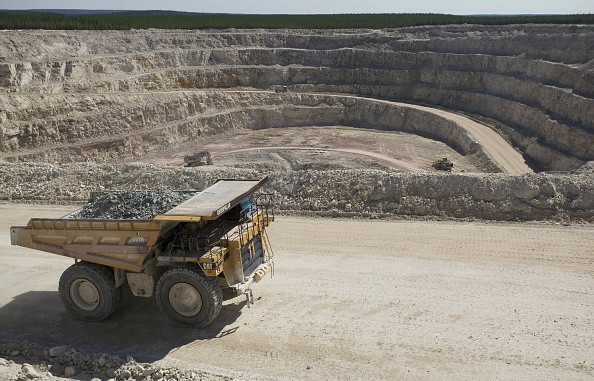Singapore startup Atomionics reportedly had its first commercial deployment of AI and gravity-driven technology for three major mining companies. Streamlining mineral reserve tracking with considerably less costs and better speed, Reuters reports.
Reuters states that the "Gravi,"technology is expected to finish its first commercial deployment by early next year after Atomionics signed contracts with the three major confidential mining companies.
Atomionics is a startup that reportedly builds "a map of the Earth's crust," by monitoring high-resolution gravity data and combining it with AI capabilities to estimate and locate critical resources needed for the energy transition.

"Gravio" proves to be a significant step towards the energy transition as Reuters states that in the hunt for minerals, the cost of drilling a single hole can range from A$10,000 to A$50,000. It may take a lithium miner up to 400 spots to demonstrate a resource, Axios adds that, as per its 2021 article, only one out of every 100 locations will contain a deposit that can be mined successfully and that the percentage has been declining recently.
Constructing a more precise virtual model before drilling can, therefore, significantly save expenses; consequently, saving costs is also one of Atomionics' primary aims. As well as a slew of environmentally-centered goals.
Read Also : Moon Mining Getting Closer to Reality Due to Private Sector's Growing Interest in Lunar Exploration
Atomionics' Implications
The environmental implications of "Gravio," according to Atomionics, include the capacity to provide a precise and non-invasive sensing capability that, according to the website, doesn't physically alter the surrounding environment.
This approach lessens environmental disturbance and the carbon emissions linked to exploratory activities while allowing exploration in protected or sensitive areas with minimal impact on the ecosystem.
Additionally, "Gravio's" exceptional high-resolution gravity data enables more accurate drill site location, reducing the adverse environmental effects of unnecessary drilling and avoiding false positives.
"Gravio" is also described as a tool to understand geophysical processes better. It also finds use in environmental monitoring, allowing the investigation of groundwater oscillations, geohazard monitoring, and even helping to further studies on the effects of climate change on sea-level changes.
Furthermore, Atomionics claims that "Gravio's" accurate gravity measurements are essential for fundamental physics research, especially for testing various parts of Einstein's general relativity theory.
AI-Driven Resource Exploration
Atomionics' "Gravio" stands amidst the mining sector, reportedly using various AI-driven methods, such as aeromagnetic surveys and ground-penetrating radar, to locate minerals. Still, no one approach can reportedly ensure success. AI is also being used by KoBold Metals, a California-based business backed by billionaires Jeff Bezos and Bill Gates, to find essential metals like lithium.
KoBold's AI-powered technology is set to explore lithium in South Korea, Australia, Africa, the United States, and Quebec, Canada, as per a recent Reuters report.
KoBold is reportedly looking for lithium in Namibia. It intends to begin looking for the mineral in the Democratic Republic of the Congo, which is the main supply of cobalt to the globe. The corporation reportedly wants to grow the mines and eventually become the biggest essential metal provider.
Prioritizing the hunt for nickel and copper, KoBold plans to construct a mine in Zambia over the next ten years.

ⓒ 2026 TECHTIMES.com All rights reserved. Do not reproduce without permission.




